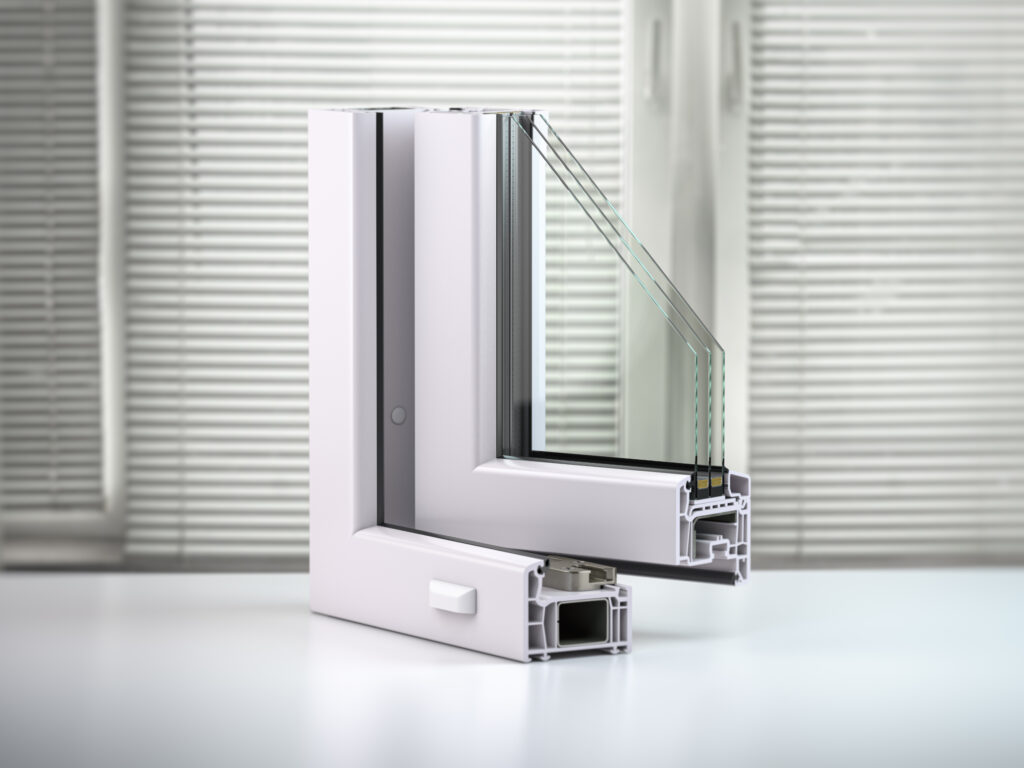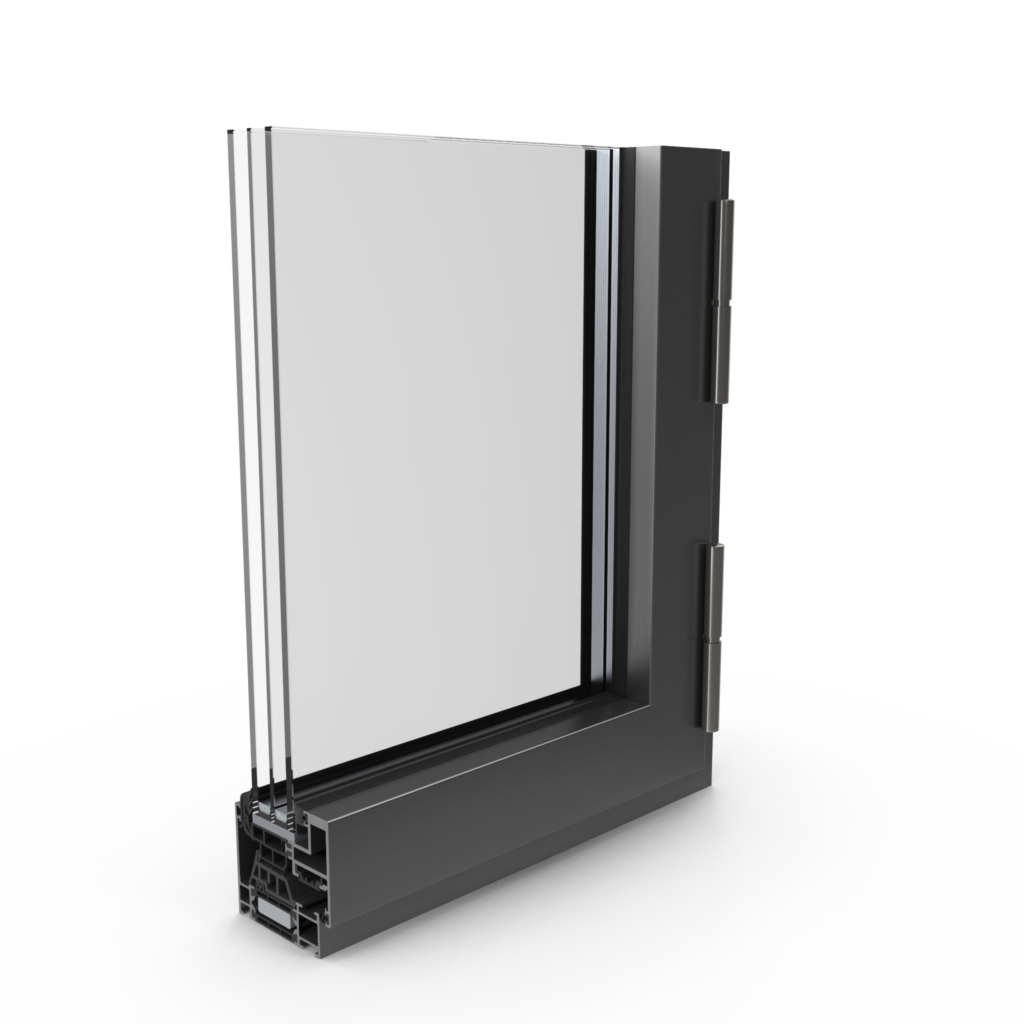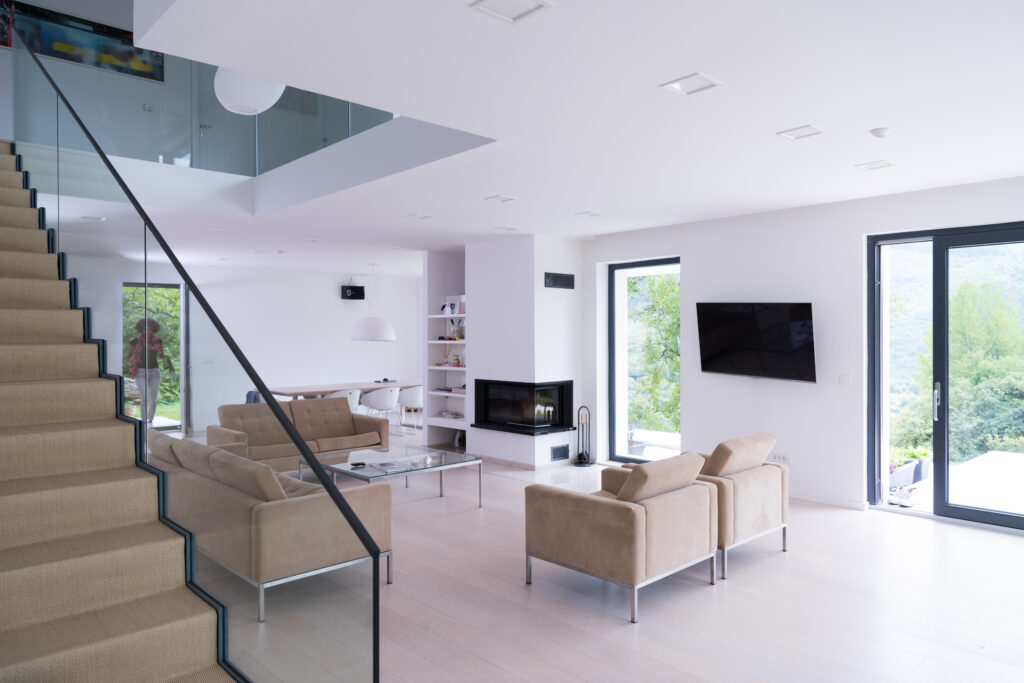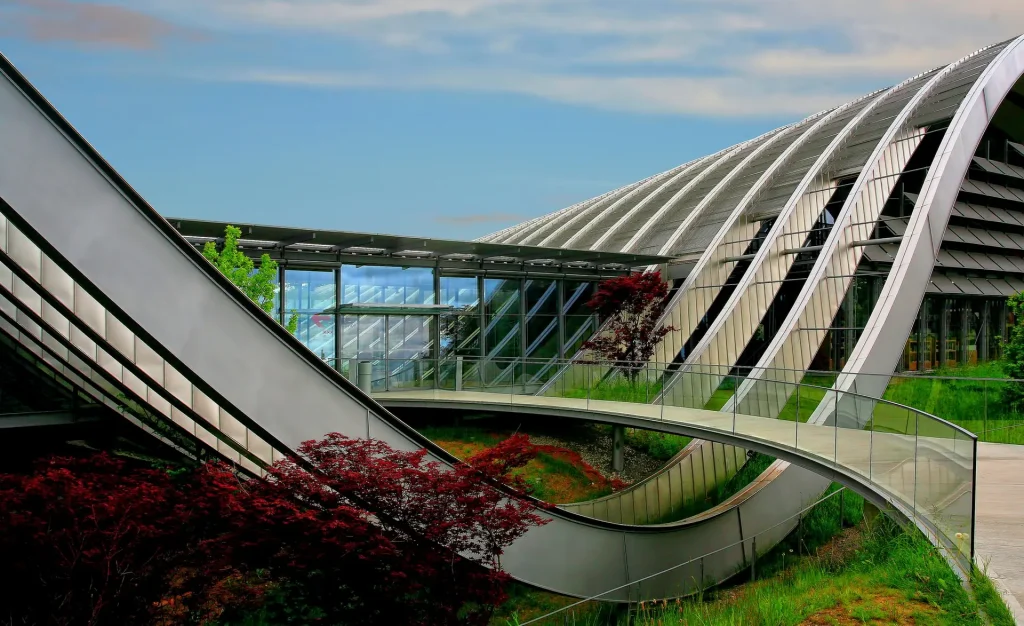Thinking about replacing your current windows? Or perhaps you’re undertaking a new build, and want to choose the best windows to suit your project.
There are several window types to choose from depending on your building constraints, personal preferences and budget. However, the most common window frame materials include classic uPVC windows, wooden (or timber) windows and aluminium windows.
In today’s post, we’re here to help anyone looking to buy window frames make an informed purchase decision.
Here’s what you need to know before you decide on a window material type, along with the pros and cons of each material.
What To Consider Before Choosing A Window Frame Material
- What is my main focus? For instance, improving the appearance of your home, reducing heat loss or noise pollution?
- Does my home or building have any conservation restrictions or planning permissions that need to be adhered to?
- Does my building have non-typical window styles or shapes, that may make some window frame types unsuitable?
- How long do I want my windows to last?
- Is the window frame type I am considering sustainable?
- How much maintenance will the material type require over time?
- What industry guarantees or certifications will the window frame type come with?
- How much am I willing to spend, and can the budget be pushed to choose a window frame that offers better longevity and less maintenance?
Although it may seem like a lot to consider the above, doing so will ensure you get the best value for money, and ultimately satisfaction. This is especially the case given windows are an investment purchase, and cannot be changed as readily as paint colours or furnishings for example.
uPVC Windows

uPVC windows are made from plastic powder that is heated up and injected into a mould to form the desired proportions and style of the window frame.
They are a popular option, mainly due to having a low cost and fast production times. uPVC windows can be seen in most homes and even commercial buildings across the UK.
Typically, uPVC windows are only supplied in one colour. Although services do exist to spray paint uPVC window frames to any desired colour, albeit without the option to return to white windows in the future, should trends change.
uPVC windows do have other considerations to be aware of. They are not always permitted to be used, including in listed buildings or other conservation areas. Their cheaper cost will also be reflected in the value of a property. Plus, the design of a uPVC window frame does not offer uninterrupted views as an aluminium window can.
Typical cost per 600mm x 900mm window: £250-£400
The benefits of uPVC windows
- Low-cost option makes them ideal for projects where the budget is tight, or where there isn’t a huge emphasis on increasing the value of the property.
- Replacement of uPVC windows can improve the internal temperature of a room in hotter and cooler conditions, especially compared with old, single-glazed uPVC frames.
- uPVC windows can be double or triple glazed or be used in conjunction with secondary glazing.
- uPVC is widely available with many installers, although FENSA-certified installers are preferred (homeowners should ask for the FENSA certificate as it may be needed when selling your property).
The drawbacks of uPVC Cons
- uPVC windows cannot be used in all home or building types, either due to sizing or shape constraints or due to the historical significance of the building.
- Will not maximise the value of the property, especially for custom-built homes.
- The frames of uPVC windows can interrupt views, unlike aluminium windows which can beautifully capture scenic views.
- Some unscrupulous uPVC window installers exist, offering ‘unbelievable’ deals yet poor products and customer service, meaning homeowners must do thorough research before choosing a provider.
- uPVC can have a lifespan of between 10-25 years, which even at the maximum estimate is less than other window materials.
- Difficult to repair uPVC window frames.
- The production and disposal of uPVC is not considered environmentally friendly.
Wooden Windows

Wooden windows (or timber windows as they are often referred to) offer another choice in the form of raw materials. The most common materials used for wooden windows include pine, oak and spruce.
The lifespan of timber windows can be as long as 60 years. However, this of course does depend on the conditions the windows are exposed to, along with the maintenance they receive over the years.
While factory-finished windows can go up to 10 years without needing repainting, the frames themselves will require checking, cleaning and oiling regularly. Repairs to wooden windows must be made swiftly, otherwise, the elements will set in and start to rot the windows. Therefore, wooden windows aren’t as low maintenance as other window types.
Another consideration with timber windows is the cost, which can average almost three times more expensive than uPVC windows, and be even pricier than aluminium windows. Although, the actual cost will depend on individual quotations.
Typical cost per 600mm x 900mm window: £850-£1,000
The benefits of wood window frames
- Can give an earthy look to a building, which may be in keeping with its interior style or user preferences.
- Wood can offer a fantastic lifespan if the frames are looked after properly and repairs are not delayed.
- Wooden windows can be sourced from sustainable suppliers.
- Are often approved for homes in conservation areas, as the styles can be made to replicate previous designs easier than other window types.
- Have excellent insulating properties, which helps to keep energy bills down.
The drawbacks of wood window frames
- Wooden windows will need painting and maintenance over their lifespan to protect against the elements.
- If repairs are delayed, serious rot and damp issues can set in.
- Wood can attract insects, and if the wood is not protected with the right paint, may develop a serious pest infestation.
- Wood has a much higher upfront cost, which will stretch the budget of any project.
Aluminium Windows

Strong yet lightweight and flexible to all window shapes and designs, aluminium offers an excellent window frame choice for homes and commercial buildings.
Contrary to popular belief, aluminium windows are not the most expensive window frame material, yet offer an exceptional lifespan that exceeds uPVC windows and untreated timber window frames.
Aluminium windows can have a powder coating applied, allowing building owners to customise the look of their windows, while simultaneously boosting the lifespan of their windows. Architectural powder coating is a service that ABS specialises in, alongside offering certifications for the quality of our work and installations, including CAB Certification and CMS Mark Certification.
Something that sets aluminium windows apart from other frame materials is their extremely attractive appearance. Unlike other frame types, aluminium typically offers a larger glass surface area, rather than disrupting the views with bulky or excessive framing. When it comes to making a statement or maximising the value of your home or commercial building, aluminium windows offer benefits in abundance.
Typical cost per 600mm x 900mm window: £550-£700
The benefits of aluminium windows
- Strong yet lightweight material, making aluminium suited to a wide scope of architectural projects and designs.
- Better at capturing scenery offering uninterrupted views.
- Can be formed into several shapes including commercial windows, round windows and gothic arch windows.
- Low maintenance, with powder coating also available.
- Looks fantastic on any building, giving a smart yet modern appearance.
- Can be used in domestic or commercial settings.
- Great insulators, especially compared with old single-glazed windows.
- Sustainable life cycle, with aluminium being fully recyclable.
The drawbacks of aluminium windows
- Aluminium has a higher upfront cost than uPVC, though typically has a longer lifespan.
- Windows will require powder coating, especially for buildings in coastal areas or locations with high moisture in the air.
- Apart from us here at ABS, not as many companies specialise in aluminium windows, which can make it more difficult to find a trusted installer.
ABS – Aluminium Windows & Doors UK
Are you interested in aluminium windows for your home or commercial building, or do you need further information about anything we’ve mentioned above?

Here at ABS, we’re a leading manufacturer of aluminium windows. Based in Nottinghamshire, we operate across the UK and produce our aluminium windows at our purpose-built factory.
If you’re ready to purchase, you can use our build a quote service to place your order, Or, if you’d like to speak to our team please give us a call on 01623 721 172.


